#Oliver Johnston
Explore tagged Tumblr posts
Text

Charles Chaplin and Harry Green on the set of the film "A King in New York" (1957)
Below are photos with the actors: Dawn Addams and Oliver Johnston.





Charlie Chaplin is interviewed on the way to the premiere of his latest film "A King in New York" 1957 :
#charles chaplin#charlie chaplin#harry greene#1957#a king in new york#dawn addams#oliver johnston#interview
29 notes
·
View notes
Text
“With Trump’s victory, the left reached its zero point.
Before we plunge into platitudes about “Trump’s triumph,” we should note some important details. First, that Trump didn’t get more votes than he did in the 2020 election—it was Kamala Harris who lost some 10 million votes compared to Joe Biden last time around. So it isn’t so much that “Trump won big” as it is Harris who lost big. It follows that all leftist critics of Trump should begin with radical self-criticism.
We must dispense with the racial-essentialist cant that came to dominate progressivism in recent decades. Trump’s victory should leave little room for the tendency to valorize certain groups based on their skin color. Among the points to be noted here, there is the unpleasant fact that immigrants, especially from Latin countries, are almost inherently conservative: They come to the United States not to change it, but to succeed in the system. Or as Todd McGowan has put it: “They want to create a better life for themselves and their family, not to better their social order.”
By the same token, we must reject the notion that Harris lost because she is a nonwhite woman. No, Harris lost because Trump stood for politics and political contestation, while she stood for nonpolitics or antipolitics. She took many progressive stances, on health care, abortion, and more. However, Trump and his partisans repeatedly made clear, “extreme” statements, while Harris exceeded in avoiding difficult choices, offering empty rhetoric. In this respect, Harris is similar to Britain’s Keir Starmer, who just happened to have the great good fortune of going up against an unpopular incumbent party that had been in power for a decade and a half. Like Starmer, Harris avoided taking a clear stance on the Gaza war, thus losing support not only from hard-line Zionists, but also Muslim imams and community leaders.
What Democrats failed to learn from Trump is that, in a political battle, “extremism” works. In her concession speech, Harris said: “To the young people who are watching, it is OK to feel sad and disappointed, but please know it’s going to be OK.” No, everything is not going to be OK. We should not trust that future history will somehow restore balance or harmony. With Trump’s victory, the trend that elevated the new populist right in many European countries reaches its climax.
(…)
Here again, we should begin with a critique of Trump’s opponents. The philosopher Boris Buden rejects the predominant interpretation that sees the rise of the new right-populism as a regression to quasi-religious fanaticism caused by the failure of modernization. For Buden, religion as a political force is instead an effect of the post-political disintegration of society, of the dissolution of traditional mechanisms that guaranteed stable communal links: Fundamentalist religion—of the kind that fuels part of Trump’s base (even as he abandons its social-conservative commitments)—is not only political, it is politics itself, i.e., it sustains the space for politics.
Even more poignantly, it is no longer just a social phenomenon, but the very texture of society, so that in a way society itself becomes a religious phenomenon. It is thus no longer possible to distinguish the purely spiritual aspect of religion from its politicization: In a post-political universe, religion is the predominant space in which antagonistic passions return. What happened recently in the guise of religious fundamentalism is thus not the return of religion in politics, but simply the return of the political as such. So the true question is: Why did the political—in the radical secular sense, the great achievement of European modernity—lose its formative power?
(…)
Here, ideology enters the scene—not just ideology in the sense of ideas and guiding principles, but ideology in a more basic sense of how political discourse functions as a social link. Aaron Schuster has observed that Trump is “an overpresent leader whose authority is based on his own will and who openly disdains knowledge—it is this rebellious, anti-systemic theater that serves as the point of identification for the people.” This is why Trump’s serial insults and outright lies—not to mention the fact that he is a convicted criminal—work for him: His ideological triumph resides in the fact that his followers experience their obedience to him as a form of subversive resistance.
Here we should mobilize the Freudian notion of the “theft of enjoyment”: an Other’s enjoyment inaccessible to us (as woman’s enjoyment is for men, or another ethnic group’s enjoyment is for our group), or our rightful enjoyment stolen from us by an Other or threatened by an Other. Russel Sbriglia noticed that the “theft of enjoyment” played a crucial role when Trump’s supporters stormed the Capitol on Jan. 6, 2021: What happened on Jan. 6 wasn’t a coup attempt, but a carnival, previously the model for progressive protest movements, suddenly appropriated by the right. The idea that carnivals represent a subversion of the status quo not only in their form and atmosphere (theatrical performances, humorous chants), but also in their non-centralized organization, is deeply problematic: Is capitalist social reality itself not already carnivalesque? Was the Kristallnacht of 1938 not a carnival if there ever was one? Furthermore, is “carnival” not also the name for the obscene underside of power, from gang rapes to mass lynchings? Let us not forget that Michail Bakhtin developed the notion of carnival in his book on Rabelais written in the 1930s, as a direct reply to the carnival of the Stalinist purges.
The contrast between Trump’s official ideological message (conservative values, of a kind) and the style of his public performance (saying more or less whatever pops up in his head, insulting others and violating all rules of good manners) says a great deal about our predicament. What kind of world do we live in in which bombarding the public with indecent vulgarities presents itself as the last barrier to protect traditional values from the triumph of total permissiveness? Or as Alenka Zupančič put it, Trump isn’t a relic of the old moral-majority conservativism—rather, he is the caricatural inverted image of postmodern “permissive society” itself, a product of this society’s own antagonisms, contradictions, and inner limitations.
Adrian Johnston has proposed “a complementary twist on Jacques Lacan’s dictum according to which ‘repression is always the return of the repressed’: The return of the repressed sometimes is the most effective repression.” Is this not also a concise definition of the figure of Trump? As Freud said about perversion, in it, everything that was repressed, all repressed content, comes out in all its obscenity. But this return of the repressed only strengthens the repression. And this is also why there is nothing liberating in Trump’s obscenities: They merely strengthen social oppression and mystification. Trump’s obscene performances thus express the falsity of his populism: To put it with brutal simplicity, while acting as if he cares for the ordinary people, he promotes big capital.
How to account for the strange fact that Trump, lewd and the very opposite of Christian decency, can function as the chosen hero of the Christian conservatives? The explanation one usually hears is that, while Christian conservatives are well aware of the problematic character of Trump’s personality, they have resolved to ignore his seedy dimension, since what really matters to them is Trump’s agenda, especially his anti-abortion stance (though he played it down this time around). But are things as simple as that? What if the very duality of Trump’s personality—his ostensible support for traditional morality accompanied by personal lewdness and vulgarities—is precisely what makes him attractive to Christian conservatives? What if they secretly identify with this very duality? This, however, doesn’t mean that we should take too seriously the images that abound in our media of a typical Trumpian as an obscene fanatic. No, the vast majority of Trump voters are ordinary people who appear decent and talk in a normal, rational way. It is as if they externalize their madness and obscenity in Trump.
(…)
This coming-open of the obscene background of our ideological space in no way means that the time of mystification is over, that now ideology openly displays its cards. On the contrary, when obscenity penetrates the public scene, ideological mystification is at its strongest: The true political, economic, and ideological stakes are more invisible than ever. Public obscenity is always sustained by a concealed moralism. Its practitioners secretly believe they are fighting for a cause, and it is at this level that they should be attacked.
Recall the sheer number of times that liberal media outlets crowed that Trump was finally caught with pants down, that he had finally committed a public suicide (mocking POWs, boasting about pussy-grabbing, etc.). Arrogant liberal commentators were shocked at how their continuous attacks on Trump’s vulgar outbursts didn’t hurt him at all, but maybe even enhanced his popular appeal. They missed how identification works: We as a rule identify with the other’s weaknesses, not only or even not principally with his strengths. So the more Trump’s limitations were mocked, the more ordinary people identified with him and perceived attacks on him as condescending attacks on themselves.
The subliminal message to ordinary people of Trump’s vulgarities was: I am one of you! This, while ordinary Trump supporters felt constantly humiliated by the liberal elite’s patronizing attitude towards them. Or as Alenka Zupančič put it succinctly: “The extremely poor do the fighting for the extremely rich, as it was clear in the election of Trump. And the left does little else than scold and insult them.” Indeed, the left does what is even worse: It patronizingly “understands” the confusion and blindness of the poor. This left-liberal arrogance explodes at its purest in the political-comedy shows anchored by the likes of Jon Stewart and John Oliver.
(…)
The problem isn’t that Trump is a clown. The problem is that there is a program behind his provocations, a method in his madness. Trump’s (and others’) vulgar obscenities are part of their populist strategy to sell this program to ordinary people, a program that—in the long term, at least—works against ordinary people: lower taxes for the rich, shoddier health care and diminished bargaining power for workers. Unfortunately, people are ready to swallow many things if these are presented to them through obscene laughter and false solidarity.
The ultimate irony of Trump’s project is that MAGA effectively amounts to its opposite: Make the United States another local superpower interacting on equal footing with other new local superpowers (Russia, India, China). An EU diplomat was right to point out that, with Trump’s victory, Europe should no longer act as Washington’s “fragile little sister.” Will Europe find the strength to oppose MAGA with something that could be called MEGA—make Europe great again—by resuscitating its radical emancipatory legacy?
The lesson of Trump’s victory is the opposite of what many liberal leftists advocated: Whatever remains of the left should get rid of its fear that it will lose centrist voters if they are perceived as too “extreme.” The left should clearly distinguish itself from the “progressive” liberal center and its corporate-friendly woke-ism. To do this brings its own risks, of course: The state itself might be divided between three or more factions, with no big governing coalition capable of taking form. However, taking this risk is the only way forward.
Hegel wrote that through its repetition, a historical event asserts its necessity. When Napoleon lost in 1813 and was exiled to Elba, this defeat may have appeared as something contingent: With better military strategy, he might have won. But when he returned to power again and lost at Waterloo, it became clear that his time was over, that his defeat was grounded in a deeper historical necessity. The same goes for Trump: His first victory could still be attributed to tactical mistakes, but now that he has won again, it should become clear that Trumpian populism expresses a historical necessity.
A sad conclusion thus imposes itself. Many commentators expect that Trump’s reign will be marked by catastrophic events, but the worst option is that there will be no great shocks: Trump will try to finish the ongoing wars (not least by imposing a peace on Ukraine); the economy will remain stable and perhaps even thrive; tensions will be attenuated; life will go on…. However, a whole series of federal and local measures will continuously undermine the existing liberal-democratic social pact and change the basic texture that holds together the United States—unraveling what Hegel called Sittlichkeit, the set of unwritten customs and rules that underpin politeness, truthfulness, social solidarity, political rights, and so on. This new world will appear as a new normality, and in this sense, Trump’s second reign may well bring about the end of what was most precious in our civilization.”
“On Tuesday, American men showed that they weren’t buying what the Harris-Walz campaign was selling. Donald Trump, liberal America’s avatar of toxic masculinity, won male voters by a margin of 10 percentage points to 13 points, depending on the survey. Harris won women, but by a much smaller seven or eight points. Men without a college degree supported Trump by 22 points. White men supported him by 20 points to 23 points, again depending on the survey. And white men without a college degree, those the Harris campaign hoped would see themselves in “America’s coach,” favored Trump by an overwhelming 38 points to 40 points.
The most impressive gendered result of the election has to be the response of young men. According to The Wall Street Journal, men aged 18 to 29 supported Joe Biden in 2020 by 15 points. In 2024, they favored Donald Trump by 14 points, an astounding 29-point swing in a single election. CNN found a much smaller Trump lead among young men of two points, but even this is a significant transformation. Democrats long believed that young people were their electoral Superman, weakened only by the kryptonite of indifference. If they could get these young voters to the polls, victory would be assured. This election just cast those illusions onto the ash heap of history.
(…)
In the end, liberal women in the media had the better measure of Minnesota’s governor. Rebecca Traister lauded Walz as an example of the emergent “Democratic man newly confident in his equal-to-subsidiary status.” Karrin Vasby Andersen praised Walz for “stepping back” and playing “contented second fiddle.” Alyce Collins acclaimed his “positive masculinity” for “showing more traditionally feminine traits” and “letting women take center stage.” Judy Berman echoed this in complimenting Walz’s “gentle form of masculinity.” Joy Reid dubbed it downright “21st century.” American women seemed to admire Walz’s masculinity far more so than did American men. Like those in 2016 who described Donald Trump as a poor man’s idea of a rich man, Walz proved to be a professional-managerial-class woman’s idea of a working-class man.
Already by mid-October, Team Harris was running low on joy. Democrats started playing hardball to close the gender gap with men. Barack Obama scolded black men in Pennsylvania for their lack of enthusiasm for the Harris-Walz campaign, explicitly accusing “the brothers” of misogyny. In Michigan, Michelle Obama tried to shame men with abortion rights, rebuking those considering a vote for Trump for treating women as “just baby-making vessels” and turning them into “collateral damage to your rage.” In the waning days of the campaign, the Democratic super PAC Progress Action Fund targeted young men with ad buys on social media warning them—in graphic terms—that their consumption of pornography and emergency contraception was at stake. Democrats were right to be worried. White men increased their vote for Trump at most by one percentage point. Black men added around 12 points, doubling their support from 2020. Hispanic men shifted to the right by anywhere from nine points to a shocking 17 points.
(…)
Americans might be consoled by the fact that, on the female side, the gender gap has actually shrunk over the Trump era. According to Pew Research analysis of validated voters, Hillary Clinton enjoyed a 15-point advantage among women in 2016, compared to 11 points for Biden in 2020. As noted earlier, current surveys for the 2024 race show Harris’s advantage among women down to seven or eight points. Men were also becoming less polarized over time. In 2016, Trump enjoyed an 11-point advantage among them, compared to two points in 2020. Some Democrats interpret the 2024 election’s return to 2016 levels among men as an undoubtable sign of misogyny. They would do better to instead see it as a reaction against those same Democrats’ attempts to scold, shame, denigrate, and manipulate men on the grounds of being men. Democrats don’t get to decide who is allowed to play gender politics; sauce for the goose is sauce for the gander. Turning the temperature down—way down—on gender politics will not only help Democrats in the future. It will help America as a whole.”
#zizek#slavoj zizek#trump#donald trump#politics#election 2024#president#america#hegel#hegelianism#freud#lacan#psychoanalysis#philosophy#alenka zupančič#jon stewart#john oliver#Adrian Johnston#Russel Sbriglia#Aaron Schuster#Boris Buden#todd mcgowan#Darel E. Paul#tim walz
8 notes
·
View notes
Text

Jeff Ament photographed by Ross Halfin for Kerrang Magazine, 1992.
The Design on his T-Shirt is a reproduction of the Silence=Death poster created by by Avram Finkelstein, Jorge Socárras, Chris Lione, Charles Kreloff, Oliver Johnston, and Brian Howard in 1986, featuring the pink triangle as a reference to Nazi persecution of LGBTQ people in the 1930s and 1940s. It became the central visual symbol of AIDS activism in the 90s.
67 notes
·
View notes
Note
As usual I read your tags always and so you said Apollo did not ask for resurrection of Asclepius and Hyacinthus so i just wanted to share this. About Asclepius death I read it on theoi.com, that earlier authors don't make him resurrect as a god but that's a later development mentioned only by Roman authors like Cicero, Hyginus and Ovid. But still Apollo has a role in Ovid's version
Ovid, Fasti 6. 735 ff (trans.Boyle) (Roman poetry C1st B.C. to C1st A.D.) : Clymenus [Haides] and Clotho resent the threads of life respun and death's royal rights diminished. Jove [Zeus] feared the precedent and aimed his thunderbolt at the man who employed excessive art. Phoebus [Apollon], you whined. He is a god; smile at your father, who, for your sake, undoes his prohibitions [i.e. when he obtains immortality for Asklepios].
So here it is actually because of Apollo the decision was taken to resurrect him as god. And with Hyacinthus, I don't think I've read about Artemis playing the primary role. I know in Sparta there was a picture of Artemis, Athena and Aphrodite carrying Hyacinthus and his sister to heaven.
This is not on theoi.com but I saw on Tumblr it's from Dionysiaca by Nonnus
Second, my lord Oiagros wove a winding lay, as the father of Orpheus who has the Muse his boon companion. Only a couple of verses he sang, a ditty of Phoibos, clearspoken in few words after some Amyclaian style: Apollo brought to life again his longhaired Hyacinthos: Staphylos will be made to live for aye by Dionysos.
So since he is singing inspired by amyclean stories it probably means in that place it was believed Apollo was the one to bring back his lover to life.
Apollo as god of order was very important so i think it shows how special these people (and admetus too) were to him that he decided to go against the order for them 🥺
ANON!! Shakes you like a bottle of ramune!! BELOVED ANON!!!!! I'm littering your face with kisses, I'm anointing you with olive oil and honey - you absolutely made my night with this because, not only did I get the pure serotonin shot of having someone interact with my tags (yippee, wahoo!!) I also got to have that wonderful feeling of "oh wow, have I misunderstood something that was integral to my understanding of this myth/figure this whole time or is this a case of interpretational differences?" which is imo vital for my aims and interests as someone who enjoys mythological content and literature.
I'll preface my response with this: Hyacinthus is by far the hardest of these to get accounts for because his revival itself, as you very astutely point out, is generally accounted for in painting/ritual format which muddies the waters on who interceded for what. I wasn't actually familiar with that passage from the Argonautica - and certainly didn't remember it so thank you very much for bringing it to my attention!
That said, what I've come to understand, both about Hyacinthus and about Asclepius is that in the accounts of their deaths, Apollo's position is startlingly clear.
For Hyacinthus, it is established time and again that Apollo would have sacrificed everything for him - his status, his power, his very own immortality and divinity. Ovid writes that Apollo would have installed him as a god if only he had the time:

(Ovid. Metamorphoses. Book X. trans. Johnston)
Many other writers too speak of how Apollo abandoned his lyre and his seat at Delphi to spend his days with Hyacinthus, but they also all agree that when it came to his death - he was powerless. Ovid gives that graphic account of Apollo's desperation as he tries all his healing arts to save him to no avail:

(Ovid, Metamorphoses Book X. Apollo me boy, methinks him dead. trans Johnston)
Bion, in one of his fragments, writes that Apollo was "dumb" upon seeing Hyacinthus' agony:

(Bion, The Bucolic Poets. Fragment XI. trans Edmonds)
Even Nonnus in the Dionysiaca speaks constantly of Apollo's helplessness in the face of Hyacinthus' fate where he writes that the god still shivers if a westward wind blows upon an iris:
and when Zephyros breathed through the flowery garden, Apollo turned a quick eye upon his young darling, his yearning never satisfied; if he saw the plant beaten by the breezes, he remembered the quoit, and trembled for fear the wind, so jealous once about the boy, might hate him even in a leaf...
(Nonnus, Dionysiaca, Book 3. trans Rouse)
And the point here is just that - Apollo, at least as far as I've read, cannot avert someone's death. He simply can't. Once they're already dead - once Fate has cut their string - all Apollo's power is gone and he can do nothing no matter how much he wants to. And this is, as far as I know, supported with the accounts of Asclepius as well!
Since you specifically brought up Ovid's account, I'll also stick only to Ovid's account but in Metamorphoses when we get Ovid's version of Coronis' demise, he writes that Apollo intensely and immediately regrets slaughtering Coronis. He regrets it so intensely that he, like he does with Hyacinthus, does his best to resuscitate her:

(Ovid, Metamorphoses Book Two. Apollo's regret)
And like Hyacinthus, when it becomes clear that what has happened cannot be undone, Apollo wails:

(Ovid, Metamorphoses Book Two. Apollo wept.)
Unlike his mother, Asclepius in her womb had not yet died and so, with the last of Apollo's strength, he does manage, at least, to save him.

(Ovid, Metamorphoses Book Two. Apollo puts the 'tearing out' in Asclepius.)
But it goes further than even that because Ocyrhoe, Chiron's daughter, a prophetess who unduly gained the ability to directly proclaim the secrets of the Fates, upon seeing the baby Asclepius, immediately prophesies his glory, his inevitable death and then his fated ascension:

(Ovid. Metamorphoses, Book Two. Ocyrhoe's prophecy. trans Johnston)
Before she too succumbs to her hubris and is transformed by the Fates into a horse so she can no longer speak secrets that aren't hers to share.
These things ultimately are important because it establishes two very important things: 1) Apollo can't do anything in the face of the ultimate Fate of mortals, which is, of course, death and 2) even when Apollo is Actively Devastated, regretful, yearning, mournful, guilty or some unholy combination of all of the above, when someone is dead, he accepts that they are gone. Even if he is devastated by it, even if he'll cry all the rest of his days about it - if they're dead? Apollo lets them go. In Fasti, when Zeus brings Asclepius back, he does not say Apollo asked him to - Zeus, or well, in this case Jove, brings Asclepius back because he wants Apollo to stop being mad at him.

(Ovid, Fasti VI. Apollo please come home your father misses you. trans. A.S Kline)
Even Boyle's translation which you used above in your findings hints that Zeus made Asclepius a god because he wanted Apollo to stop grieving. (i.e 'smile at your father', 'for your sake [he] undoes his prohibitions')
And like, Apollo was deeply upset by Asclepius' death - apart from killing the Cyclops in anger, in book 4 of the Argonautica, Apollonius writes that the Celts believe the stream of Eridanus to be the tears Apollo shed over the death of Asclepius when he left for Hyperborea after being chastised by Zeus for killing his Cyclops:
But the Celts have attached this story to them, that these are the tears of Leto's son, Apollo, that are borne along by the eddies, the countless tears that he shed aforetime when he came to the sacred race of the Hyperboreans and left shining heaven at the chiding of his father, being in wrath concerning his son whom divine Coronis bare in bright Lacereia at the mouth of Amyrus.
It all paints a very clear picture to me. Apollo did not ask for either of them to be brought back. Though bringing them back certainly pleased and delighted him, they are actions of other gods who are moved by Apollo's grief and mourning and seek to mollify him. Him not asking doesn't mean he didn't want them back which I think is a very important distinction by the by, but it simply means that Apollo knows the natural order of things and, even if it hurts, he isn't going to press his luck about it.
Which, of course, brings us to Admetus. And I'm really not going to overcomplicate this, Admetus is different because, very vitally, Admetus is not dead. Apollo can't do a thing once Fate has been carried out and Death has claimed a mortal but you know what he absolutely can do? Bargain like hell with the Fates before that point of inevitability. And that's what he does, ultimately for Admetus and Alcestis. He sought to prolong Admetus' life, not revive him from death or absolve him from death altogether and even after getting the Fates drunk, he's still only able to organise a sacrifice - a life for a life - something completely contingent on whether some other mortal would be willing to die in Admetus' place and not at all controllable by Apollo's own power.
All of these things, I think come back to that point you made - that Apollo's place as a god of order is very important and therefore these people are very special to him if it means he's willing to go against that order but, I also wish to challenge that opinion if you'd let me. Apollo's place as a god of order is very important and therefore, I would argue, that it is even more important that it is shown that he does not break the divine order, especially for the people that mean the most to him. The original context of my comments which started this conversation were on this lovely, lovely post by @hyacinthusmemorial which contemplated upon Asclepius from the perspective of an Emergency Medical personnel and included, in their tags, the very poignant lines "there's something about Apollo letting go when Asclepius couldn't that eats my heart away" and "you do what you can, you do your best, but you don't ever reach too far" and I think that's perfectly embodied with the Apollo-Asclepius dichotomy. Apollo grieves. He wails, he cries, he does his best each and every time to save that which is precious to him but he does not curse their nature, he does not resent that they are human and ultimately, he accepts that that which is mortal must inevitably die. There is nothing that so saliently proves that those who uphold rules are also their most staunch followers - if Apollo wants to delight in his place as Fate's mouthpiece, he cannot undo Fate. And, if even the god of healing and order himself cannot undo death, what right does Asclepius, mortal as he is, talented as he is, have to disrespect it?
The beauty of these stories isn't that Apollo loved them enough to bring them back. The beauty is that Apollo loved them enough to let them go.
#this is such a long ass post oh my god#ginger answers asks#This totally got away from me but I AM PASSIONATE ABOUT THIS AAAA#Anon beloved anon I hope you don't take this as me shutting you down or anything because that really isn't what I'm trying to do#I'm definitely going to dig more into the exactness of 'who petitioned for Hyacinthus to be revived actually?"#I always stuck to the belief that it was Artemis because of the depictions of his revival + his procession is usually devoid of Apollo#I know some renaissance paintings have him and Apollo reuniting but that's usually In The Heavens y'know#I genuinely couldn't think of any accounts that have Apollo Asking for anyone to be revived#Apollo does intercede sometimes but that's usually for immortals like Prometheus#Or even when he's left to preside over Zagreus' revival and repair in orphic tradition#Concerning Asclepius there's like a ton to talk about tbh#There's the fact that in some writings (in quite a lot actually) the reason Asclepius was killed wasn't necessarily that he brought someone#back - it was that he accepted money for it#Pindar wrote about it and Plato talks about how if Asclepius really did accept gold for a miracle then he was never a son of Apollo#It's a whole thing really#I think it's very important that it's Asclepius in his mortal folly that tests the boundaries of life and death tbh#The romanticisation of going to any length to bring back a loved one is nice and all#But sometimes the kindest and most lovely thing you can do for someone is to accept it#Just accept that they're gone - accept that there was nothing that could be done and even if the grief is heavy - keep living#Maybe we won't all get our lost loves back#But there are definitely always more people worth loving if you just live long enough to find them#apollo#asclepius#zeus#admetus#greek mythology#ovid#oh my god so much ovid#hyacinthus#coronis
102 notes
·
View notes
Text
NHL Wedding Season 2024
We're back again for another summer of NHL weddings! If you'd like to see last year's, check out this post.
If you see something wrong or someone missing, let me know! I'll continue to update this list until September when the weddings fizzle out. I appreciate the replies, reblogs, and asks with corrections and additions ❤️
6/7/24: Adam Larsson: (private wedding, no idea)
6/19/24: Jake Evans: Brendan Gallagher, Joel Edmundson, Tyler Toffoli, Nick Suzuki, Joel Armia
6/22/24: Max Jones: Trevor Zegras, Jacob Bryson
6/26/24: Adam Fox: (looked to be just family)
Josh Anderson: Nick Suzuki, Max Domi, Nick Foligno, Seth Jones, Cam Atkinson, Scott Hartnell
6/29/24: Ryan Pulock: Matt Martin, Noah Dobson, Casey Cizikas, Oliver Wahlstrom, Adam Pelech, JG Pageau, Josh Bailey, Mat Barzal, Anthony Beauvillier, Cal Clutterbuck, Bo Horvat, Simon Holmstrom, Pierre Engvall, Mikey Reilly
Jake Oettinger: Mason Marchment, Tyler Seguin, Ty Dellandrea, Wyatt Johnston
7/3/24: Mason Marchment: Jake Oettinger, Tyler Seguin, Ty Dellandrea, Brandon Montour, Mike Carcone, Owen Tippett, Sam Reinhart
7/6/24: Nic Hague: Cody Glass, Owen Tippett, Zach Whitecloud, Alec Martinez, Shea Theodore, William Karlsson, Keegan Kolesar, Nic Roy
Brendan Gallagher: Cole Caufield, Nick Suzuki, Carey Price, Jeff Petry, Chris Wideman, Tanner Pearson, Nate Thompson, Philip Danault, Christian Dvorak, Jake Evans, Sam Montembeault
7/7/24: Adam Fox 2.0: Ryan Reaves, Kevin Rooney, Will Cuylle, Vincent Trocheck, Jacob Trouba, Barclay Goodrow, Alexis Lafreniere, Blake Wheeler, Jimmy Vesey, Jonathan Quick, Ryan Lindgren, Braden Schneider, Sammy Blais, Ryan Donato, John Marino
7/10/24: Elias Lindstrom: (haven't seen any NHL guests)
7/11/24: Jared McCann: Jordan Eberle, Yanni Gourde, Vince Dunn, Jamie Oleksiak, Jaden Schwartz, Matty Beniers, Will Borgen, Kailer Yamamoto, Justin Schultz, Andre Burakovsky, Ryan Donato, Darnell Nurse, Brandon Tanev
7/13/24: Jack Campbell: Tyler Toffoli, Jake Muzzin, Kyle Clifford, Evander Kane
Alex Carrier: Frederick Gaudreau, Mathieu Joseph, Jimmy Oligny
Pierre Engvall: Simon Holmstrom, Owen Wahlstrom
Andrew Mangiapane: Johnny Gaudreau, Rasmus Andersson, Mikael Backlund, Noah Hanifin, Erik Gudbranson, Mack Weegar, Troy Stecher, Jonathan Huberdeau
Kyle Connor: Zach Werenski, Evgeny Svechnikov, Connor Hellebuyck, Tony Calderone
Eetu Luostarinen: Niko Mikkola, Lundell Anton, Aleksander Barkov
Tyler Madden: Alec Turcotte, Akil Thomas
Zack MacEwen: (haven't seen any NHL guests)
7/18/24: William Carrier: Mathieu Joseph
7/19/24: Kaapo Kahkonen: (haven't seen any NHL guests)
7/20/24: Jamie Benn: Tyler Seguin, Joe Pavelski, Jordie Benn, Jason Robertson, Roope Hintz, Joel Kiviranta, Miro Heiskanen, Esa Lundell, Ben Bishop, Luke Glendenning, Ty Dellandrea, John Klingberg
Alex Killorn: Yanni Gourde, Pat Maroon, Brandon Hagel, Nikita Kucherov, Victor Hedman, Zach Bogosian, Anthony Cirelli, Luke Schenn, Ryan McDonagh, Tyler Johnson, Blaine Gabbert, Cam Brate, Andrei Vasilevskiy
Thomas Chabot: Josh Norris, Brady Tkachuk, Tim Stutzle, Mathieu Joseph
Sebastian Aho: Teuvo Teräväinen, Jesperi Kotkaniemi, Seth Jarvis, Antti Raanta, Nino Niederreiter, Jesper Fast, Jani Hakanpaa
7/22/24: Michael Bunting: Mitch Marner, Auston Matthews, John Tavares, Jake Muzzin, Morgan Reilly, Fred Anderson, Wayne Simmons, Alex Kerfoot, TJ Brodie, Kyle Clifford
7/26/24: Jake Lucchini: (haven't seen any NHL guests)
7/27/24: Connor McDavid: Leon Draisaitl, Darnell Nurse, Zach Hyman, Evander Kane, Cody Ceci, Evan Bouchard, Vinny Desharnais, Brett KUlak, Connor Brown, Ryan Mcleod, Derek Ryan, Stuart Skinner, Philip Broberg, Warren Foegele, Devin Shore, Kyle Turris, Luke Gazdic, Zack Kassian, Patrick Maroon, Sam Gagner
Carter Verhaeghe: Matthew Tkachuk, Aaron Ekblad, Evan Rodrigues, Stolarz, Ryan Lomberg, Nick Cousins
8/3/24: Travis Sanheim: Travis Konecny, Scott Laughton, Shayne Gostisbehere, Joel Farabee, Morgan Frost, Tyson Foerster, James Van Riemsdyk
Connor Ingram: (haven't seen any NHL guests)
Cody Glass: (haven't seen any NHL guests)
8/4/24: David Pastrnak: Taylor Hall, Tukka Rask, Patrice Bergeron, Brad Marchand, Zdeno Chara, Charlie Coyle, Hampus Lindholm, Jeremy Swayman, Linus Ullmark, Torey Krug, David Krecji
8/9/24: Alex Tuch: Shea Theodore, Zemgus Girgensons, Tage Thompson
8/10/24: Tyler Johnson: Yanni Gourde, Ondrej Palat, Mathieu Joseph, Ryan McDonagh, Alex Killorn, Pat Maroon, Reese Johnson, Adam Gaudette
8/17/24: Cale Makar: Gabe Landeskog, Nathan MacKinnon, Erik Johnson, Bo Byram, Darren Helm, Andrew Cogliano, Josh Manson, Kurtis Macdermid
Zachary Sanford: (haven't seen any NHL guests)
Mike Amadio: Zach Whitecloud, Ben Hutton, Brett Howden, Nic Hague, Nic Roy
Andrew Copp: JT Compher, Tyson Jost
Ryan Johansen: Colton Sissons, Luke Kunin, Roman Josi, Matt Duchene, Dante Fabbro, Cam Atkinson, Ross Colton, Miles Wood
8/23/24:
Roope Hintz: Tyler Seguin, Esa Lundell, Patrik Laine,
#nhl#adam fox#ryan pulock#jack campbell#jared mccann#andrew mangiapane#jake oettinger#wedding#cale makar#connor mcdavid#matthew tkachuk
87 notes
·
View notes
Note
Mr. Chongo, why did you tag that boar post as Cody Johnston?
It's a reference to his show "Some More News", a weekly comedic political show in the same vein as John Oliver, where they spend about an hour covering a specific news subject (I highly recommend it)
One of his older bits that hasn't come back for a while is some episodes he likes to lampoon conspiracy theorists by theorizing that boars are the greatest evil in the world ever.
48 notes
·
View notes
Text
Okay! Ich hab Bock auf nen Thread für Nolin Songs (Happy, sad, destructive, hopeful, mir schnurz, alles was ihr mögt und für passend haltet!)
Haut eure favorites raus und lasst sie uns sammeln!
Love Situation (911) - Blanks
Ich würd‘ lügen - Kayef (irgendwie mehr Noah pov but still about them)
What you do to me - Blanks
love should be easy - Zoe Wees 
Hold on me - Ella Henderson
Back to December - Taylor Swift
Midnight Rain - Taylor Swift
You‘re losing me - Taylor Swift
Love lies - Khalid & Normani
Let somebody go - Coldplay & Selena Gomez
Letzter Song - Cro
Falling - Cro
Dich - Cro (OMG Leute! Hört den euch an und schaut dann noch mal Folge 1047!)
C'est La Vie (Graham Lake Edit) - Graham Lake
Scream - WTRGRL & Zhone
Just friends - Nuno Freitas
Gravity - Michael Johnston 
Just You and I - Tom Walker
Flash mich - Mark Forster (Ja, der obligatorische Mark Forster Song hat es auch in meine Playlist geschafft)
The heart wants what it wants - Selena Gomez
Sorry - Justin Bieber (fragt nicht)
Wish I could forget - SLANDER, Blackbear & bring me the Horizon
Dream Boy - Waterparks
Closer - Waterparks
Kiss me - Sixpence None the Richer
Smile again - Blackbear
You be love - Avicii ft. Billy Raffoul
Miss you - Oliver Tree & Robin Schulz
Lost without you - Kygo & Dean Lewis
Unendlichkeit - MilleniumKid & JBS
Mit dir - MilleniumKid
Dir ist es egal - MilleniumKid (AUA)
Until I found you - Steven Sanchez & Em Beihold (unser inoffizieller Endgame Song 💔)
Heaven - Bryan Adams
When you‘re gone - Bryan Adams ft. Melanie C.
Please forgive me - Bryan Adams
It must have been love - Roxette
Listen to your heart - Roxette
Liar - LOWLIVES
Let Em Go - Matt Hansen
Break my heart - Matt Hansen
Without you with me - Matt Hansen
Dead the day you‘re gone - Matt Hansen
Where you belong - Matt Hansen
Can‘t stop loving you - Phil Collins
True Colors - Phil Collins
Weißt du - Rowli
Durch die Nacht - Francis
Close to you - Dayglow
Had me @ Hello - Luke Benward (don‘t ask aber der Song ist gut)
Mine - Michael Gerow
Broken - Isak Danielson
Don‘t think twice - Hikaru Utada (any Kingdom hearts Fans here? 👀)
Alone Pt. II - Alan walker & Ava Max
Falling stars - Fabian Schuster
Missed chance - Fabian Schuster
Strangers - Jake Cornell
Count me out - HART (not really sure about that one but it kind of fits?)
Clarity - Zedd ft. Foxxes
I‘d rather die - Lost stars (das ist so Noah!)
Vertigo - Lost Stars
Something just like this - The Chainsmokers & Coldplay
no more days alone - Isaac Anderson
33 notes
·
View notes
Text


February 28th 1638 the signing of the Second Covenant began in Greyfriars Churchyard.
Upwards of 60,000 people had gathered in the city for the event. Its architects were Alexander Henderson and Archibald Johnston of Warriston. Warriston read the Covenant and a prayer was offered by Henderson, thereafter the Earl of Sutherland stepped forward and began the signing “amidst great emotion.”
The Protestant Reformation of the 1500s happened differently between Scotland and England. Alternating systems of worship and organisation developed in the two countries with numerous beliefs and factions within them.
After the Union of the Crowns in 1603 both King James VI & I and his son, Charles I, had been faced with the dilemma of managing two quite different national Churches in their Kingdoms –the more Presbyterian Church of Scotland and the Anglican Church of England.
When Charles attempted to bring the Scottish Church in line with Anglicanism in 1637, it prompted widespread opposition and even rioting, if you recall my previous post about Jenny Geddes and the first reading of the Kings common prayer book in St Giles.
Militant Presbyterian opponents took aim at practices they thought ‘idolatrous’ and akin to Roman Catholicism, which they believed had strayed from the true word of God and spiritual salvation.
And so it was that in 1638 they drafted The National Covenant. While it wasn’t anti-monarchist, it said that faith came from a higher power than the king: God. Misguided Charles needed correcting in his errors.
They saw the Scottish people’s relationship with God as a covenant – a sacred contract, alluding to the Israelites of the Old Testament – that had been renewed through the Protestant Reformation. This was a declaration of rights that even royal authority could not interfere with.
It gave the document its name and consequently to that of its supporters – ‘Covenanters’. Copies were sent out to parishes all over Scotland to be read and signed by all. It was equal parts religious manifesto, legal essay, and agitationary propaganda.
Charles believed – as did other monarchs around Europe at the time – that his earthly power came from God, and saw it as an act of treason.
It was the spark which lit a volatile powder keg. The Wars of the Three Kingdoms (civil wars in Scotland, England and Ireland), the overthrow and beheading of Charles I, and the rule of Oliver Cromwell and the Protectorate all followed.
Covenanter governments were in power in Scotland for a time. An alliance with the English Parliamentarians – brokered on The Solemn League and Covenant of 1643, another key ‘manifesto’ in Covenanter beliefs – helped tip the balance of the First English Civil War against the Royalists.
Increasing disillusionment with the Parliamenterians’ perceived lack of commitment to a Presbyterian state led to bitter factional splits in Scotland. The result was the Scottish Parliament’s bulldozing of Charles II into the unlikely role of a very reluctant covenanted King. It meant civil war between former allies and shambolic defeat, with Scotland under military occupation for nearly a decade.
Presbyterianism was tolerated until the restoration of the Stuart monarchy in 1660. Charles II attempted to complete the work began by his forebears, no doubt with a bit of a grudge to bear. All religious assemblies or ‘conventicles’ outside of the authority of the Church of England were deemed illegal.
This led to more turmoil in Scotland, which I cover in my posts through the year which mainly involved James Graham, 1st Marquess of Montrose fighting for the King against Covenanter forces.
Nowadays we’re not so serious about our religion, in fact during the last census in 2011 the largest demo graph were “Not Religious at 36.7% followed by Church of Scotland at 32.4%.
The printed National Covenant, as seen in the first pic, is in the possession of Signet Library, bearing multiple signatures and dated 1638.
6 notes
·
View notes
Text




Charlie Chaplin, Dawn Addams and Oliver Johnston in the film "A King in New York", directed and performed by Charles Chaplin.
Below is the movie poster.

6 notes
·
View notes
Text

September 2024 Wrap Up
Thank god it's finally fall! I'm so excited for cooler weather. I finished drafting another dissertation chapter, which means I'm halfway through. Unfortunately, now I have to deal with job applications...
Books Read: 16
Check me out! To be fair, a lot of these are short since I was participating in Shorty September over on YouTube. But 16 is still pretty impressive! My favorite is Wylding Hall, closely followed by Fairy Tale. My least favorite was Life Studies, which I found quite disappointing. Titles marked with ® are rereads.
New Grub Street by George Gissing - 4.5 stars
Snow Drifts by Deven Philbrick - 4 stars
To Bedlam and Part Way Back by Anne Sexton - 4 stars
Fairy Tale by Stephen King - 5 stars
White as Snow by Tanith Lee - 4 stars
Rules for the Dance: A Handbook for Writing and Reading Metrical Verse by Mary Oliver - 4 stars
Time is a Mother by Ocean Vuong - 4 stars
They Never Learn by Layne Fargo - 3.5 stars
The Winter's Tale by William Shakespeare - 4 stars
Passing by Nella Larsen - 4.5 stars
Exit, Pursued by a Bear by E. K. Johnston - 5 stars ®
The Lady's Mile by Mary Elizabeth Braddon - 3 stars
Antigone by Sophocles - 3.5 stars
The Uninhabited House by Charlotte Riddell - 5 stars
Wylding Hall by Elizabeth Hand - 5 stars
Life Studies by Robert Lowell - 2 stars
On Tumblr:
And look at all these photos! I'm having a great time getting back into book photography, especially now that I have a nice camera. I also participated in a readathon hosted by @thereadingchallengechallenge, which was tons of fun!
August 2024 Wrap Up
Book Photography: Red Comet by Heather Clark
Book Photography: White as Snow by Tanith Lee
Book Photography: Fairy Tale by Stephen King
Book Photography: The Norton Shakespeare
Book Photography: Passing by Nella Larsen
Book Photography: Wylding Hall by Elizabeth Hand
Book Photography: The Uninhabited House by Charlotte Riddell
Book Photography: Mini Book Haul
Book Photography: Life Studies by Robert Lowell
Tagged: People I want to get to know better!
TRCC Readathon
On YouTube:
This is the first time in a long time there are less things in this section than in the On tumblr section. I guess I just need a little break from filming.
August Wrap Up | 9 books!
Currently Reading 9/4/24
My Favorite Books Under 250 Pages | Shorty September
Ranking All the Shakespeare Plays I've Read | #shaketember
My Annual Overly Ambitious Victober TBR!
15 notes
·
View notes
Text

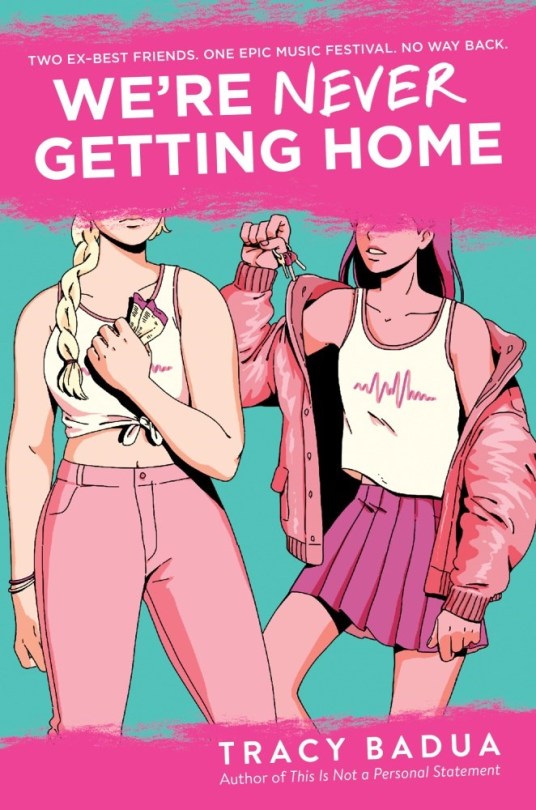



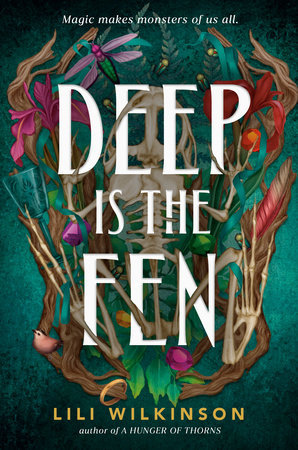
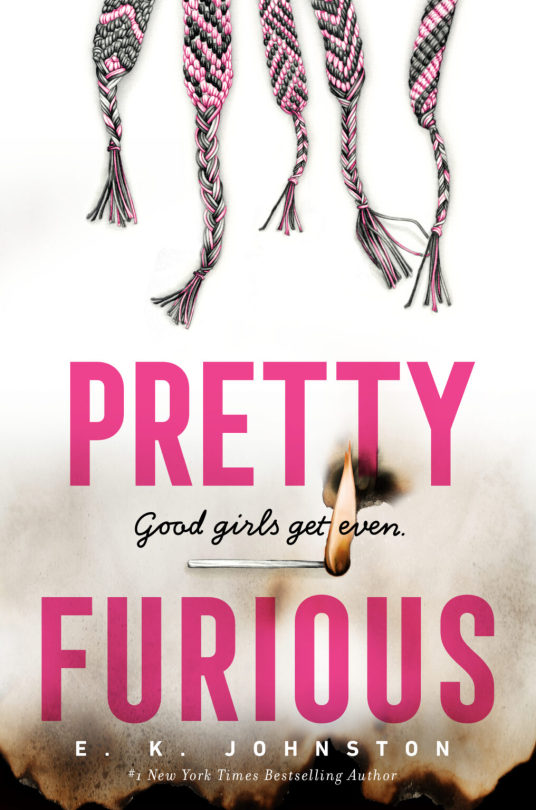

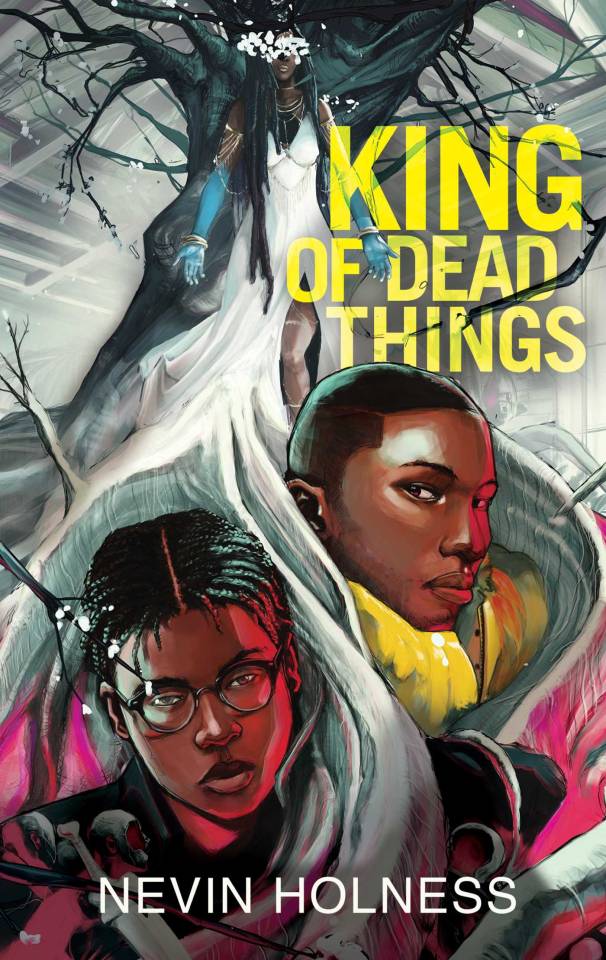



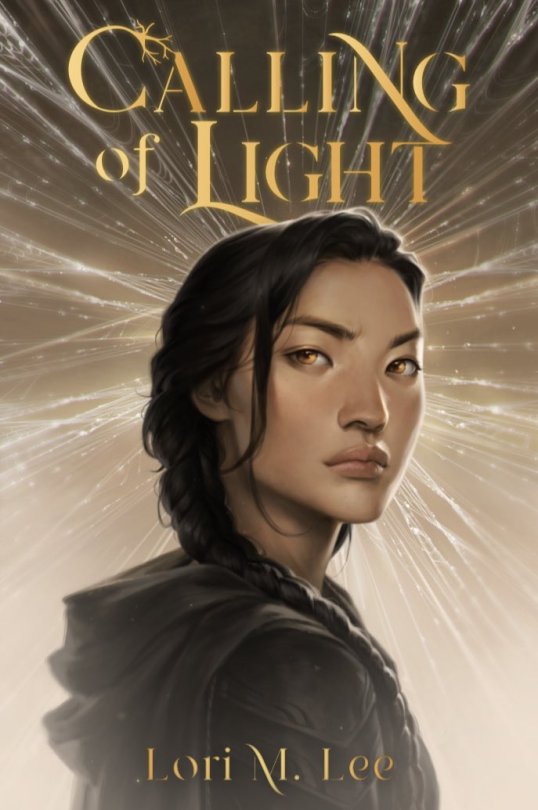

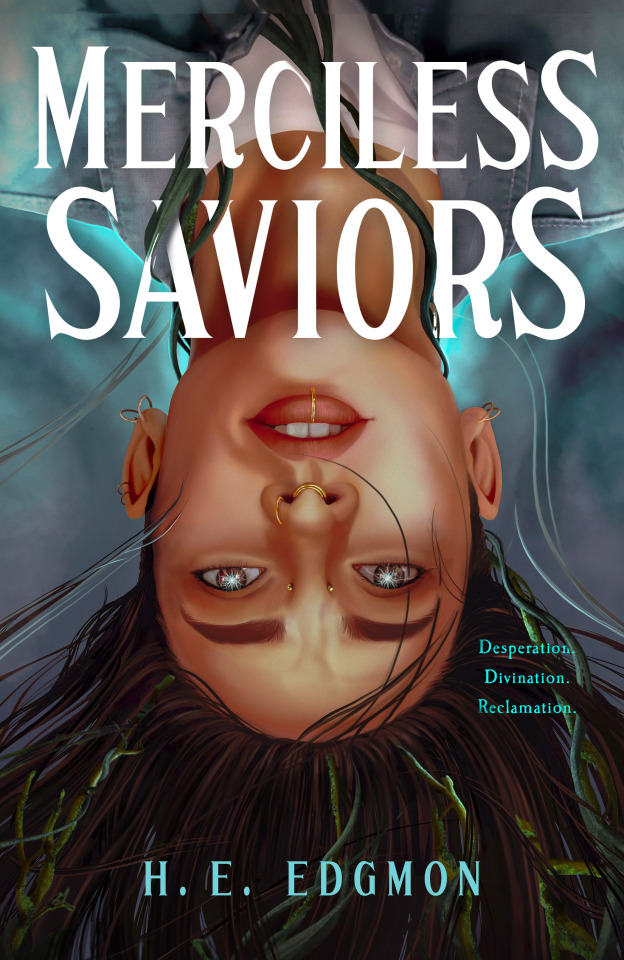

NEW YOUNG ADULT RELEASES! (APRIL 16TH, 2024)
___
HAVE I MISSED ANY NEW YOUNG ADULT RELEASES? HAVE YOU ADDED ANY OF THESE BOOKS TO YOUR TBR? LET ME KNOW!
___
NEW STANDALONES/FIRST IN A SERIES:
Dear Wendy by Ann Zhao
We're Never Getting Home by Tracy Badua
This is Me Trying by Racquel Marie
This Night is Ours by Ronni Davis
The One That Got Away With Murder by Trish Lundy
Deep is the Fen by Lili Wilkinson
Pretty Furious by E.K. Johnston
The Harrowing by Kristen Kiesling , Rye Hickman (Illustrator)
King of Dead Things by Nevin Holness
To Gaze Upon Wicked Gods by Molly X. Chang
The Kill Factor by Ben Oliver
The End of Always by Rebecca Phillips
NEW SEQUELS:
Calling of Light (Shamanborn #3) by Lori M. Lee
The Lady of Rapture (The Bones of Ruin #3) by Sarah Raughley
Merciless Saviours (The Ouroboros #2) by H.E. Edgmon
Sheine Lende (Elatsoe #2) by Darcie Little Badger , Rovina Cai (Illustrator)
___
Happy reading!
#New Releases#New Books#Young Adult#YAlit#tbr#to-read#book list#book blog#book blogger#Features#on books#on reading#books#booklr#bookish#bookworm#bookaholic#readers of tumblr#bibliophile#Darcie Little Badger#Rovina Cai#H.E. Edgmon#Sarah Raughley#Lori M. Lee#Rebecca Phillips#Ben Oliver#Molly X. Chang#Nevin Holness#Rye Hickman#Kristen Kiesling
20 notes
·
View notes
Text
Since it’s taking me like 10 million years to draw Preble’s Boys as animals, here’s the list that I’ll eventually get to.
The Man himself Edward Preble: Polar bear Isaac Hull: Otter (originally Winnie the Pooh for cuddly reasons) Jacob Jones: Barn owl (he gives me the Owl from Winnie the Pooh vibes; intelligent and friendly but dude is literally in his own world) Stephen Decatur: American Water Spaniel (the goodest boi in the whole damn American Navy!) William Bainbridge: Persian cat (pathetic wet cat syndrome) James Lawrence: Sacrificial lamb from the Chesapeake lmao! Isaac Chauncey: Beaver (He’s a builder) David Porter: Wolverine (bro just wants to fight somebody!) William Burrows: Porcupine (he’s a bit touchy….) Lewis Warrington: Mr. Peacock Man James Biddle: Mink (don’t touch his mink fur coat people!) Charles Stewart: Fennce fox (I thought he was a redhead this whole time but guess not? Also he’s a bit sly) Thomas Macdonough: Northern Cardinal (absolutely for religious reasons) Daniel Todd Patterson: Chipmunk (adorable and resourceful)
Major side characters under cut
John Rodgers: Wild cat (Edward Preble’s rival)
James Barron: White tailed deer (Stephen Decatur’s complicated Virginian acquaintance. Look up the scientific name)
Oliver Hazard Perry: Osprey (let’s face it, a cool bird of prey)
Samuel Evans: Fruit bat (don’t believe them when they say Evans was bat shit crazy)
Johnston Blakeley: Magpie (I originally thought he was a “Preble’s Boy” but found out he never served with Preble but with Rodgers.)
William M. Crane: You guessed it (Lewis Warrington’s mildly annoying brother in law. A Preble’s Boy but for a crane symbolizing good fortune, bro has the opposite of that.)
Washington Irving: Coyote (David Porter’s smart ass bestie)
Charles Morris: Iguana (not a cold blooded reptile; just observant and no nonsense)
Richard Somers: Poodle (there was puppy love once upon a time)
John and Robert Henley: Eagles solely for “The Eagles” joke (Don Henley) “Preble’s Boys” and Martha Washington’s nephews. *I’m convinced they knew Lewis Warrington since all three grew up in Williamsburg VA. HC all three attended William and Mary together but the brothers aren’t exactly friends with Warrington; more like coldly polite. Lewis Warrington had somewhat of a rough time growing up since his mother wasn’t married when she had him and the townspeople looked down on her even before him.*
#preble’s boys#1812 commodores#war of 1812#us navy#preble’z boyz#naval history#commodore david porter#lewis warrington#stephen decatur#isaac hull#isaac chauncey#commodore william bainbridge#william burrows#james biddle#James Lawrence#Charles Stewart#Thomas Macdonough#daniel todd patterson
4 notes
·
View notes
Text
now presenting Kristenswig’s Most Anticipated Major Motion Pictures of 2025

Jupiter (Andrey Zvyangintsev)
Sentimental Value (Joachim Trier)
Miroirs No. 3 (Christian Petzold)
Die, My Love (Lynne Ramsay)
The Secret Agent (Kleber Mendonca Filho)
Butterfly Jam (Kantemir Balagov) (idgaf)
On Land and Sea (Hlynur Palmason)
Alpha (Julia Ducournau)
Untitled (Kathryn Bigelow)
The Mastermind (Kelly Reichardt)
A Big Bold Beautiful Journey (Kogonada)
Orphan (Laszlo Nemes)
Private Life (Rebecca Zlotowski)
The History of Sound (Oliver Hermanus)
Resurrection (Bi Gan)
Rebuilding (Max Walker-Silverman)
After the Hunt (Luca Guadagnino)
M3GAN 2.0 (Gerard Johnstone)
Honey Bunch (Madeline Sims-Fewer & Dusty Mancinelli)
The Bride (Maggie Gyllenhaal)
Rose of Nevada (Mark Jenkin)
The Ice Tower (Lucile Hadzihalilovic)
Dreams (Michel Franco)
Drop (Christopher Landon)
Hope (Na Hong-jin)
The Perfumed H-[gunshots]
6 notes
·
View notes
Text

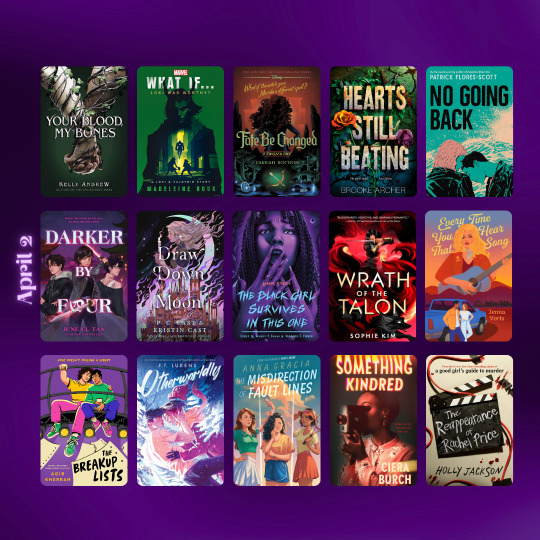



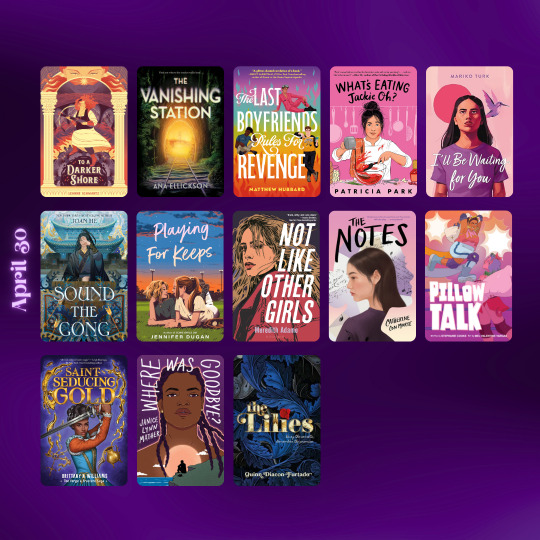
April 2024 Young Adult Book Releases
🦇 Good morning, my bookish bats. I hope you have a good book, delicious latte, and sweet snack within reach! No TBR is complete without a few young adult novels, and plenty were released in April! Here are a few YA releases to consider adding to your shelves.
[ List Under the Cut ]
🩷 April 2 🩷 ✨ Your Blood, My Bones - Kelly Andrew ✨ What If... Loki Was Worthy? - Madeleine Roux ✨ Fate Be Changed - Farrah Rochon ✨ No Going Back - Patrick Flores-Scott ✨ The Reappearance of Rachel Price - Holly Jackson ✨ Darker by Four - June C.L. Tan ✨ Draw Down the Moon - P.C. Cast & Kristin Cast ✨ The Black Girl Survives in This One ✨ Wrath of the Talon - Sophie Kim ✨ Every Time You Hear That Song - Jenna Voris ✨ Otherworldly - F.T. Lukens ✨ Misdirection of Fault Lines - Anna Gracia ✨ Something Kindred - Ciera Burch ✨ Hearts Still Beating - Brooke Archer ✨ Call Forth a Fox - Markelle Grabo
🩷 April 9 🩷 ✨ Teenage Dirtbags - James Acker ✨ Canto Contigo - Jonny Garza Villa ✨ Dragonfruit - Makiia Lucier ✨ The Final Curse of Ophelia Cray - Christine Calella ✨ Fog & Fireflies - T.H. Lehnen ✨ Against the Darkness - Kendare Blake ✨ The Darkness Rises - Stacy Stokes ✨ Right Here, Right Now - Shannon Dunlap ✨ The Last Love Song - Kalie Holford
🩷 April 16 🩷 ✨ To Gaze Upon Wicked Gods - Molly X. Chang ✨ Merciless Saviors - H.E. Edgmon ✨ Deep Is the Fen - Lili Wilkinson ✨ This Is Me Trying - Racquel Marie ✨ Calling of Light - Lori M. Lee ✨ Pretty Furious - E.K. Johnston ✨ Dear Wendy - Ann Zhao ✨ The Lady of Rapture - Sarah Raughley ✨ The End of Always - Rebecca Phillips ✨ The Kill Factor - Ben Oliver ✨ The Breakup Lists - Adib Khorram ✨ We're Never Getting Home - Tracy Badua ✨ The Harrowing - Kristen Kiesling & Rye Hickman ✨ King of Dead Things - Nevin Holness ✨ Sheine Lende - Darcie Little Badger & Rovina Cai ✨ The One That Got Away with Murder - Trish Lundy
🩷 April 23 🩷 ✨ Song of the Six Realms - Judy I. Lin ✨ Off With Their Heads - Zoe Hana Mikuta ✨ Blood Justice - Terry J. Benton-Walker ✨ Kill Her Twice - Stacey Lee ✨ Dark Parts of the Universe - Samuel Mille ✨ Finally Fitz - Marisa Kanter ✨ The Merciless King of Moore High - Lily Sparks ✨ Out of Blue Comes Green - M.E. Corey ✨ A Whisper in the Walls - Scott Reintgen ✨ Homebody - Theo Parish ✨ Punk Rock Karaoke - Bianca Xunise
🩷 April 30 🩷 ✨ To a Darker Shore - Leanne Schwartz ✨ The Vanishing Station - Ana Ellickson ✨ The Last Boyfriends Rules for Revenge - Matthew Hubbar ✨ What's Eating Jackie Oh? - Patricia Park ✨ Sound the Gong - Joan He ✨ Playing for Keeps - Jennifer Dugan ✨ Not Like Other Girls - Meredith Adamo ✨ The Notes - Catherine Con Morse ✨ I'll Be Waiting for You - Mariko Turk ✨ Pillow Talk - Stephanie Cooke & Mel Valentine ✨ Saint-Seducing Gold - Brittany N. Williams ✨ Where Was Goodbye? - Janice Lynn Mather ✨ The Lilies - Quinn Diacon-Furtado
#ya books#young adult romance#young adult books#young adult fiction#young adult#book list#book releases#book release#batty about books#battyaboutbooks#books#reading#reading books
11 notes
·
View notes
Note
Not only John Oliver, but Seth Meyers! I relied on A Closer Look to give me the news in a "we're making jokes but also on the brink of screaming because this isn't normal" way. I miss Seth.
I know you're not looking for recommendations, but Some More News with Cody Johnston on YouTube helps to fill the gap for me.
:)
25 notes
·
View notes
Text
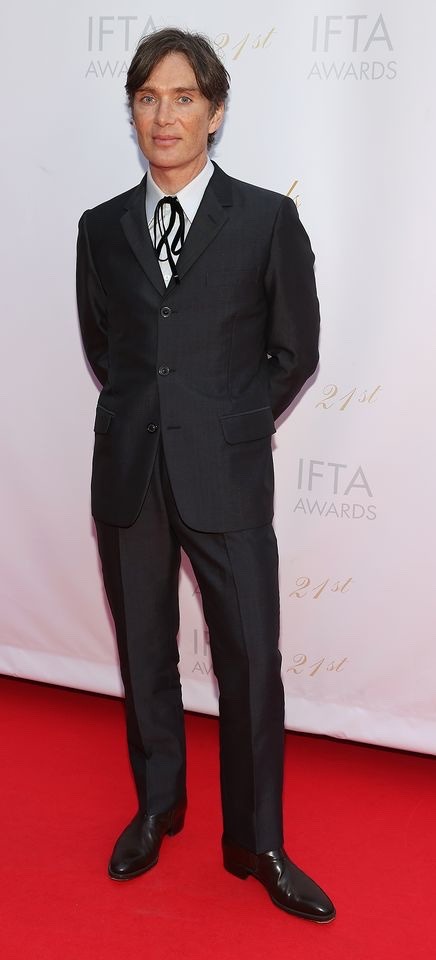
Cillian Murphy Named Best Actor at Irish Academy Awards pictured at the IFTA Awards 2024 at the Dublin Royal Convention Centre. Picture: Brian McEvoy

Agnes O'Casey won Lead Actress for Lies We Tell
Cillian Murphy wins Lead Actor, Agnes O'Casey wins Lead Actress while KIN picks up five awards including Best Drama at Irish Film and Television Awards 2024.
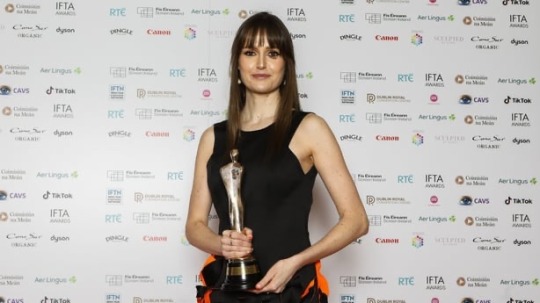
Clare Dunne won the IFTA for Lead Actress for KIN
KIN star Clare Dunne took her third IFTA when she won the award for Lead Actress in a Drama in a category which also included Sharon Horgan for Best Interests, Niamh Algar for Malpractice and Caitriona Balfe for Outlander.
Full list of IFTA 2024 winners:
Film Categories
BEST FILM
That They May Face the Rising Sun
DIRECTOR - FILM
Lies We Tell - Lisa Mulcahy
SCRIPT - FILM
Lies We Tell - Elisabeth Gooch
LEAD ACTOR - FILM
Cillian Murphy - Oppenheimer
LEAD ACTRESS - FILM
Agnes O'Casey - Lies We Tell
SUPPORTING ACTOR - FILM
Paul Mescal - All of Us Strangers
SUPPORTING ACTRESS - FILM
Alison Oliver - Saltburn
DRAMA CATEGORIES
BEST DRAMA
KIN
DIRECTOR - DRAMA
KIN - Kate Dolan
SCRIPT - DRAMA
KIN - Peter McKenna
LEAD ACTOR - DRAMA
Éanna Hardwicke - The Sixth Commandment
LEAD ACTRESS - DRAMA
Clare Dunne - KIN
SUPPORTING ACTOR - DRAMA
Richard Dormer - Blue Lights
SUPPORTING ACTRESS - DRAMA
Maria Doyle Kennedy - KIN
BEST INTERNATIONAL FILM
Oppenheimer
BEST INTERNATIONAL ACTOR
Paul Giamatti - The Holdovers
BEST INTERNATIONAL ACTRESS
Emma Stone - Poor Things
GEORGE MORRISON FEATURE DOCUMENTARY
The Days of Trees
LIVE-ACTION SHORT FILM
Calf
ANIMATED SHORT FILM
Wind & The Shadow
CRAFT CATEGORIES
CINEMATOGRAPHY
Poor Things - Robbie Ryan
COSTUME DESIGN
LOLA - Lara Campbell
PRODUCTION DESIGN
A Haunting in Venice - John Paul Kelly
HAIR & MAKE-UP
The Pope's Exorcist - Orla Carroll, Lynn Johnston
SOUND
Barbie - Nina Rice
ORIGINAL MUSIC
LOLA - Neil Hannon
EDITING
Still: A Michael J Fox Movie - Michael Harte
VFX
Dungeons & Dragons: Honor Among Thieves - Kev Cahill, Diana Giogiutti
#IFTA Awards
Posted 20th April 2024
7 notes
·
View notes